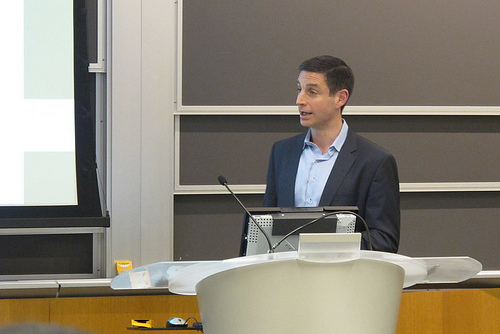
Adaptation deserves consideration as response to global warming.
Adapting to a changing climate may be the most realistic response to climate change, according to MIT economist Michael Greenstone, who spoke at a recent risk regulation seminar organized by the Penn Program on Regulation.
“Climate change is costly. Mitigation is unlikely,” Greenstone argued. Economic incentives and administrative burdens conspire against a global regulatory scheme that could prevent or mitigate the damaging consequences of climate change such as droughts, heat waves, mortality, and decreased agricultural productivity. As a result, Greenstone insisted, adaptation may be the most realistic response to climate change.
Citing a “near consensus” that high carbon dioxide emissions will cause temperatures to rise, Greenstone explained that any effective mitigation scheme to stave off the effects of climate change would require a reduction in the use of cheap fossil fuel.
According to Greenstone, a large-scale reduction would disproportionately affect developing countries such as China and India, both of which require low-cost energy to sustain their growing economies. These countries, he noted, have already been reluctant to promise reductions that will hurt their future growth, as shown by their weak promises during the Copenhagen Accord.
Moreover, since the majority of benefits created by mitigation efforts will accrue in the future, Greenstone asserted that many other nations will likely be unwilling to invest upfront in emission reduction programs.
In the absence of viable mitigation, effective policy could encourage countries to adapt their behaviors to climate change, whether through improved distribution or use of respiratory drugs, chlorinated water, and air conditioning.
The consequences of climate change will be more severe in poor countries than in developed ones. Although many of today’s poor countries may not be poor at the end of the century, Greenstone’s research finds that hot temperatures have a much bigger impact on mortality rates in India than in the United States currently.
Conceding that adaptation may also have disproportionately higher costs on poor countries, Greenstone suggested that this solution will be necessary to combat effectively the rapidly escalating problems created by climate change.



